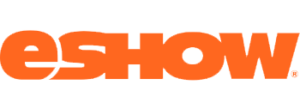Planning an event means balancing a hundred moving parts, including timing, logistics, budgets, and of course, the experience you’re delivering. However, there’s one thing that should never be overlooked, which is capturing and managing leads in the exhibit hall. The right lead retrieval tool can make a huge difference in ensuring your exhibitors see real results from their investment in your event.
As event planners, we understand how important it is to get this right. Here’s what you need to know before selecting a lead retrieval solution for your next event.
What Is Lead Retrieval?
Lead retrieval is a tool that helps exhibitors collect and manage contact information from people they meet at an event. Most commonly, this data is pulled through badge scanning or QR codes, which makes the process fast, accurate, and automated.
When you invest in a smart, user-friendly lead capture system, you enhance the exhibitor experience and increase the overall value of your event.
Why Lead Retrieval Matters for Your Event
As an event planner, you want to ensure your exhibitors walk away with value. Lead capture does more than capture contact information; it enables exhibitors to qualify leads, prioritize follow-ups, and ultimately increase ROI from the event.
Here’s why investing in the right solution matters:
1. Delivers Measurable ROI for Exhibitors
Exhibitors come to events to connect with potential buyers. The right solution helps them capture qualified, organized, and actionable leads, which means faster follow-ups and more conversions. When exhibitors see real results, they are more likely to return and invest more in future events.
2. Drives Exhibit Sales
A strong lead retrieval system makes your booth packages more attractive. When you can demonstrate that your event helps exhibitors meet the right contacts and close deals, it becomes easier to sell space and increase revenue.
3. Improves the Attendee Experience
Good lead capture solutions integrate seamlessly into your event ecosystem. Attendee information can be quickly and reliably scanned, interactions are smoother, and data is handled responsibly, creating a professional, streamlined experience.
4. Provides Strategic Data for Planners
Integrated lead retrieval software gives you visibility into traffic flow, engagement levels, and behavioral trends. These insights help you optimize future events, make smarter programming decisions, and demonstrate value to stakeholders.
5. Reduces Risk and Builds Trust
A reliable and compliant system ensures that data is accurate, secure, and privacy-conscious. This builds confidence among exhibitors and attendees that their information is handled with care and protects you as the event organizer by ensuring only verified and validated individuals interact with each other.
In short, the right lead retrieval system isn’t just a tech upgrade, it’s a growth engine for your event.
What to Look for in Lead Retrieval Solutions
Choosing the right system comes down to understanding your event’s needs and what you want to achieve. Here are the key features to look for:
- Ease of Use
The software should be intuitive, requiring minimal setup and training for your exhibitors. - Scalability
Whether you’re organizing a small trade show or a large conference, the system should scale to fit your event’s size. - Privacy and Compliance
Ensure the software complies with data protection standards. - Exhibitor and Onsite Support
Look for a provider that offers dedicated exhibitor support and experienced staff onsite. eShow delivers hands-on assistance before, during, and after the event to help exhibitors make the most of their lead capture tools. - Reliability
Choose a tool that’s proven to work under the pressure of live events. Ensure your lead retrieval system has a track record of being dependable.
Using Lead Retrieval to Maximize Your Event’s Value
Lead retrieval is more than just an operational necessity, it’s an investment in your event’s overall success and growth. High-quality lead capture tools can enhance exhibitor ROI, drive booth sales, and provide actionable insights, all while increasing your event’s value. Here’s how you can strategically integrate lead capture into your event’s broader goals:
- Boost Booth Sales
Offering a high-quality lead capture tool makes your exhibit packages more attractive. When exhibitors know they will walk away with qualified, actionable leads, they are more likely to reserve space and return year after year. - Gain Actionable Insights
When combined with session tracking, check-in processes, and mobile app engagement, lead retrieval provides a detailed understanding of attendee behavior. This enables you to refine your event layout, enhance content, and boost engagement, ensuring future events are even more impactful. - Enhance Post-Event Value
Giving exhibitors easy access to manage their own follow-up data helps them convert leads faster. When exhibitors succeed, your event gains a reputation for delivering results, making it easier to grow in the future.
If you are looking to improve the exhibitor experience and create a more engaging, data-driven event, eShow’s eConnect Lead Retrieval offers a comprehensive solution. With over 26 years of experience, eShow understands how to deliver seamless, reliable lead capture for events of all sizes.
Take a quick look at our webinar to discover how eConnect Lead Retrieval boosts exhibitor ROI and elevates your event:
Lead Capture That Works for You: Drive Exhibitor ROI and Increase Value
In this webinar, our lead retrieval expert, Lawrence Givens, Director of Onsite Solutions at eShow, demonstrates how eConnect Lead Retrieval simplifies lead capture, improves exhibitor engagement, and delivers measurable value across your events.
By integrating the right lead retrieval tool, you can turn every interaction on the show floor into an opportunity for growth and stronger exhibitor relationships. Explore how eConnect Lead Retrieval can support your next event’s success today.
Ready to learn more? Let us know how we can help you get started.
